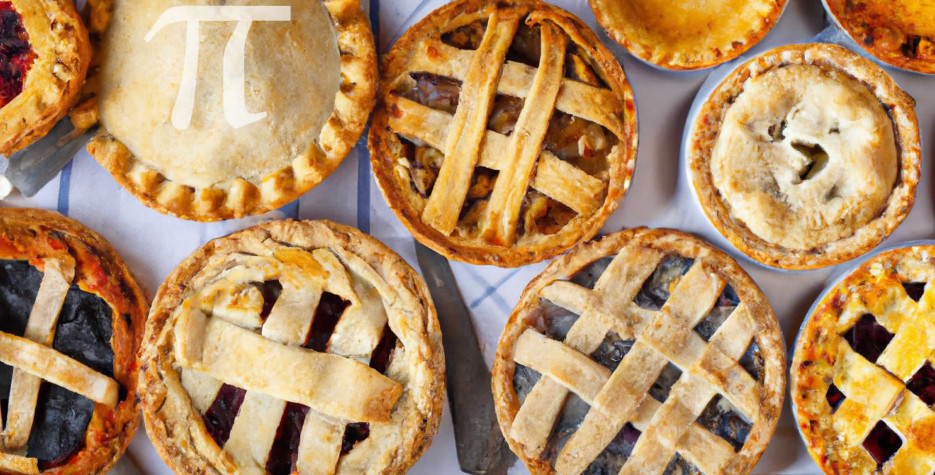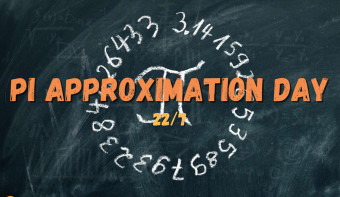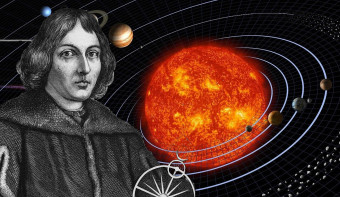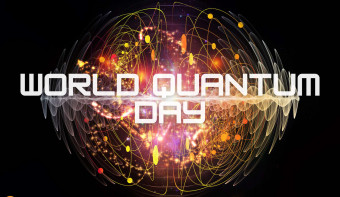About National Pi Day
Who Started Pi Day?
The third month, fourteenth day. Pi Day, as in 3.14. Pi Day has become an annual celebration of the mathematical constant pi (π), founded by physicist Larry Shaw. Shaw was a physicist who was a longtime employee at the Exploratorium, a science museum in San Francisco, California, and came up with the idea of “π Day” on a 1988 staff retreat, following the death of Exploratorium founder and Nobel Prize nominee Frank Oppenheimer.
The day also happens to be Albert Einstein's birthday.
The first π Day celebration simply involved Shaw and his wife handing out slices of fruit pie and tea at 1:59 p.m., which are the three digits following 3.14, however, the holiday quickly gained fame throughout the Bay Area.
In 2009, March 14th was officially sanctioned as a U.S. holiday when the U.S. House of Representatives passed “H.Res.224 - Supporting the designation of Pi Day...”
“Whereas Pi can be approximated as 3.14, and thus March 14, 2009, is an appropriate day for ’National Pi Day’: Now, therefore, be it Resolved, That the House of Representatives—
(1) supports the designation of a ’Pi Day’ and its celebration around the world;
(2) recognizes the continuing importance of National Science Foundation’s math and science education programs; and
(3) encourages schools and educators to observe the day with appropriate activities that teach students about Pi and engage them about the study of mathematics.”
How to Celebrate Pi Day
Popular ways to celebrate include baking a pie and other circular confectionery treats, or constructing a paper pi chain where every 10 digits is a different color, and creating a collage out of circular shapes.
What is Pi?
Pi is the ratio of a circle’s circumference to its diameter. Since this ratio, no matter the size of the circle, always approximates to 3.14, pi is of the most important and interesting mathematical facts, which is why it has its own national holiday.
The Pi symbol was adopted by Swiss mathematician, Leonard Euler, in 1737.
Once computers came onto the scene, that number jumped into the thousands, millions and now trillions. In 2019, Google developer Emma Haruka Iwao broke the record held by scientist and pi enthusiast Peter Trueb by calculating pi to 31 trillion digits – 31,415,926,535,897 digits to be exact.
The current world record for memorizing and reciting the most digits of pi was established by Suresh Kumar Sharma of India in 2015 when he recited a mind-boggling 70,030 digits in 17 hours and 14 minutes.
Similar Observances
Copernicus Day
Read More
World Quantum Day ⚛️
Read More
Other Observances on March 14th 2026
National Learn About Butterflies Day
Read More












